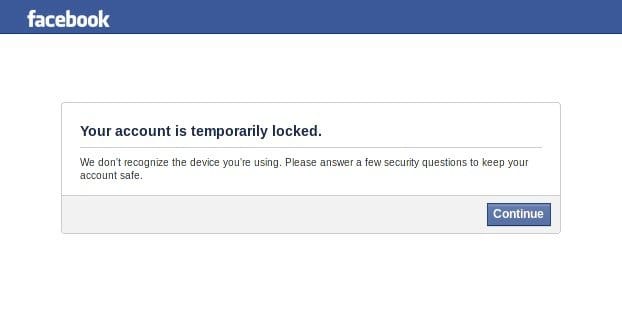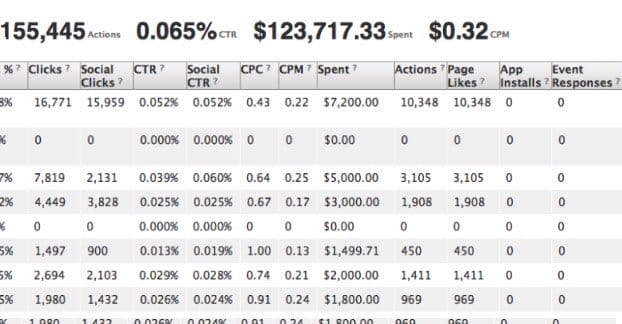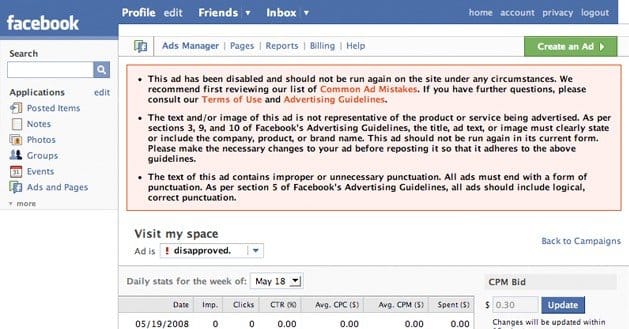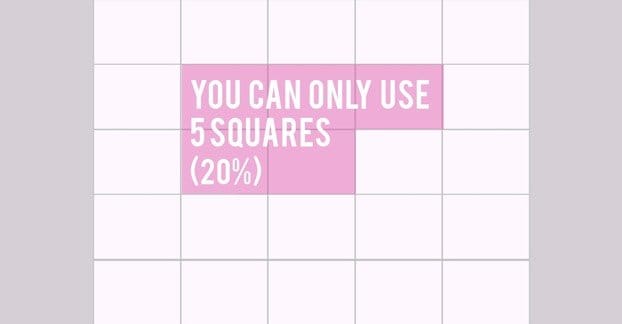 Written by ContentPowered.com
Written by ContentPowered.com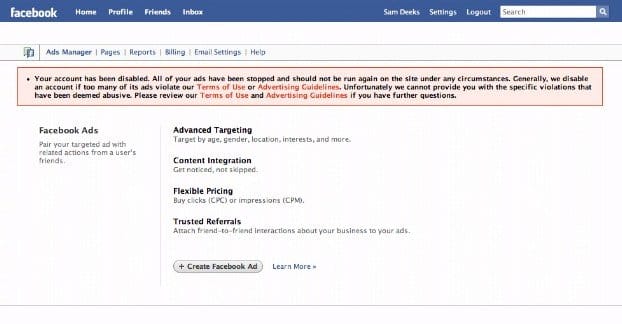
There are quite a few reasons why a Facebook ads account might be suspended, disabled, or terminated. Unfortunately, Facebook doesn’t make it easy to get back in their good graces. Oh, they’ll talk about it as if it’s easy, but it’s almost like they make the process as obtuse as possible just to dissuade people from trying. After all, when big companies are paying tens or hundreds of thousands of dollars a month, what’s your $250 to them?
The first step to recovering your account is to figure out what you did to get your account disabled in the first place. Thankfully, perhaps, your ads are all paused – unless you were banned – so you’re not spending money without access to your campaigns. If you were actually banned, your ads were cancelled and any unspent balance refunded.
Reasons for Ad Suspension
There are a ton of policies for Facebook ads, and violating any one of them can potentially get your ad account disabled or suspended. Some of them are more likely to get your account banned as a whole, more permanently. These tend to happen if the cause is intentional fraud, though, so you probably aren’t reading this for an appeal. You know you screwed up and you should seek other alternatives rather than try to get back in Facebook’s good graces.
Rather than word for word copy everything that can get you suspended or banned from Facebook ads, I’m going to summarize. I’m not including everything, just the most common causes. For the full list, you can read their advertising policies page.
There are three main possible root causes of issues with your ads account that can result in a suspension. I’ll try to categorize reasons in those three groupings. The first is issues with your account itself.
Issues with your account tend to be problems with the tactics you’re using, with the history of your ad violations, or with your information itself. One such issue is creating different ad accounts with the intent of pretending to be different agencies or businesses, but using the same IP for all of them. The same payment information for all of them can also trip this flag. It’s a sign of fraud, and Facebook will slap all associated accounts if they can. The reverse can get you disabled as well; logging into a single account from a variety of different IPs. This can be dangerous for people who travel frequently, particularly internationally, because Facebook suspects a compromised account. Thankfully, this is one of the easier ban reasons to get lifted.
Another warning sign is a dramatic increase in ad spend, or starting off with a very high ad spend. Unless you’re a known entity, Facebook doesn’t like you jumping into the deep end right away. It’s a sign that you may be a spammer, looking to get as much value out of them as possible before you’re reported and banned. If you’re new, start off gradually, even if you find a hit ad and want to scale it.
Speaking of having a new account, until you rack up some trust, you’re in a fragile position. New accounts are more prone to being disabled, because they haven’t proven to be good accounts yet. Older, more established accounts can get away with more over time.
If your account becomes an ad graveyard, particularly full of ads that have been denied approval, clean it up. Having too many denied ads sticking around is like having a bunch of negative reviews, only you can do something about them. Delete denied ads as soon as possible. You can save offline copies of the data for use later as need be. If your ads are denied, don’t try to tweak and resubmit; go with something safe and build back your trust.
Also, you should avoid giving account access to anyone who has been banned before or may still be banned. To Facebook, it looks like they found a loophole or someone to scam to let them run their ads again, and it gets the new account banned as well. If someone with access to your ads system leaves the company or quits as a client, get rid of their access immediately.
Payment issues are almost always instant bans. If you charge money and the financial institution initiates a chargeback, Facebook will ban you. If you use stolen or invalid information, Facebook will suspend you or ban you. If your information is declined or doesn’t match your personal information, they will suspend you. Be very, very careful with payment information.
The second set of issues are issues with your ads themselves. This is where the massive list of ad restrictions comes in. These are also by far the most common issues. They tend to be lower-level issues, in that they result in suspensions more than bans, but they’re also easy to trip. Like YouTube’s copyright flags, they also linger, and getting too many of them can hurt your account in more permanent ways.
First of all, don’t make ads about restricted topics. There is a pretty long list, but it generally comes down to thins like sex, gambling, casinos, online dating, violence, illegal items, get rich quick schemes, or anything that has a history of being a scam online. Some of these, like dating ads, are allowable on Facebook only with previous written permission from Facebook themselves. Trust me; you’re not likely to get it. Very few established sites get it, let alone newer sites.
Ads that get a lot of negative feedback from users will also be suspended themselves and can result in a suspended account. Users that report or block individual ads will be harming the pages behind them. Sometimes it’s just a vindictive user, but sometimes it’s an issue with the content or presentation of the ad itself. High amounts of negative feedback are bad, mmkay.
Facebook hates ads that disguise their purpose. They also hate clickbait style ads. Another bannable subject is any time you make claims, direct or implied, about what your ad can accomplish. This includes anything from “make an extra $1,000 following our process” to before-and-after pictures of weight loss.
Misleading or unrelated images and copy are a big no-no as well. Gone are the days when a bikini-clad girl could sell anything. The only time a girl in a bikini is allowable as an image for an ad is if you’re selling that bikini.
There are a few restricted content types for ads as well. Anything referencing a personal characteristic, like name or birthday, is banned. You can’t use sex to sell, and anything provocative will be suspended. Violence and controversial topics will be locked as well.
There’s also the 20% text rule. I’m not going to say much on that, though; Jon Loomer has it covered here.
Ads that imply functionality that doesn’t exist, like a play button on a static image, don’t fly. As a footnote, you can’t use Facebook iconography or trademarks in your ads either.
The third type of issues that can crop up are issues with your landing page. This is very much like what happens with Google’s Ad Quality Score, and in fact is similarly named. The Facebook Ad Quality is a measurement of how good and relevant your ad is compared to your landing page. A massive discrepancy between your ad content and the content of your landing page is grounds for suspension, though it will often take more than one instance for a suspension to actually occur.
Your landing page needs to be clear and you need to have reputable business elements on it, like a link to your privacy policy and contact information. You can’t use trapping mechanisms, such as pop-overs, exit intent pops, autoplay video, or anything that triggers on closing the tab or window. Also, any time your landing page is actively malicious, such as trying to download malware, you will be immediately banned and will not be able to appeal.
How to Appeal a Disabled Account
Once you have some idea of what you did wrong, you can try to appeal. The form you can use is here.
It asks you a series of questions.
- Is the account you’re currently using the account you use for ads?
- Which advertiser ID is yours? It provides a drop-down menu for the accounts tied to the one you’re using.
- Which payment method did you add to your account? The two options are credit card or PayPal. You can check one or both.
- Are you the owner of the financial instrument on file? This means are you the one with your name on the credit card, or is it on someone else’s name or a business name where you don’t own the business.
- If you’re not the owner, who is? You have options including family, friends, coworkers, or unknown.
- What is the name of the owner of the financial instrument on file?
- What is the email address of the owner of the financial instrument on file?
- What is the reason you’re using the financial instrument of someone other than yourself, if you are?
- Have you attempted to purchase Facebook ads, or were you suspended for a reason other than purchasing ads?
- What is your current ad campaign? Facebook wants you to provide a brief description of the campaign. If it was something in your ads that violated a terms of service rule and caused your suspension, this would be where to point out and acknowledge it.
- Have you noticed any irregularities with your ad spend or purchase activities? This can be an indication of fraud unrelated to your use of the card, or of being hacked.
- Is your current location different from the country on file as the billing country for your payment method?
- What is your current location, and what is the location of the billing country?
- Why are these countries different, if they are?
Finally, you will be asked to upload a copy of your government photo ID. They recommend that you cover up personal information such as a license number that they don’t need to see.
Once you submit this appeal, there’s really not much you can do. You can’t hasten the process along in any way, and trying to submit the appeal a second time will do nothing. At best, it’s just in the queue again after the first one. At worst, it removes your first appeal and sets you to the end of the line. I don’t know how Facebook works internally, so I can’t tell you which it is.
I also recommend avoiding the newbie trap of trying to go to the Facebook support forums and seeking help there. 90% of the people posting there have the same issues and no solutions, and will just try to piggyback off your topic with their own issues. The few that try to give aid aren’t Facebook employees and may even be giving incorrect information. That place is a bit of a lawless wasteland with no moderation, so it’s not very useful.
Eventually, Facebook will get back to you with a message. There are two possibilities. The first is that they accept your appeal and explanation of what went wrong, and they will lift your suspension. Be very, very careful if this happens. You will have access to your ads again, but you have a flag on your account that lasts indefinitely. One suspension, regardless of the reason, puts you on thin ice. If you have another violation, and especially if you have the same violation again, you’re basically screwed if you’re suspended again. You’ll get the second letter.
The second letter is the confirmation that you are indeed screwed. Your ads account was suspended for a reason they may or may not deign to give you, and it’s a final decision. They choose not to revert their decision and your suspension is a permanent ban.
Your only recourse now is to create a new account, and even then, you’re still on thin ice. It’s generally recommended that you use different information, including everything from name to payment information to the IP you use to log in to your account. If you have to create an entirely new personal account to do this, you will likely have to make use of that account in a natural, non-ads way for months before you can safely create ads. Even then, if you slip up and use redundant information, you’ll trip a filter and earn yourself another ban. It’s almost more of a pain than it’s worth.
